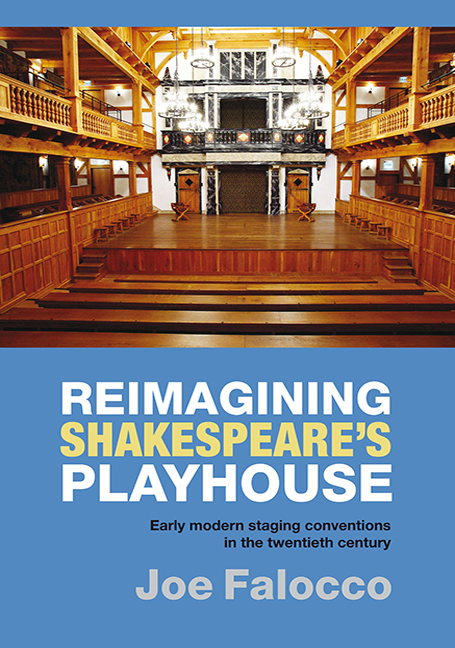Summary
During his lifetime, Nugent Monck's fame was international. Hugh Hunt, a noted West End director who also worked at the Old Vic, wrote in 1934, “I have been asked by numerous friends in France and Germany if I ever visited the Maddermarket Theatre at Norwich, while most American tourists, interested in the theatre, make this one of their pilgrimages” (“Maddermarket” 48). This global renown spread in the years following World War II, when a replica of Monck's playhouse was built in Graz, Austria. Critics and practitioners saw the Maddermarket as “the only genuine Elizabethan theatre” in Britain (Miller 326), and as a laboratory for testing ideas about early modern staging. Hunt, for instance, directed half of the 1933–4 season at the Maddermarket and applied this experience to the scholarly controversy surrounding the nature of the “inner stage” (Live Theatre 76). Barry Jackson was so taken with Monck's efforts that, when Jackson became director of the Shakespeare Memorial Theatre in 1946, he immediately hired Monck to stage Pericles. In 1953 a distinguished group of theater artists and critics including Ivor Brown, Lewis Casson, Barry Jackson, Paul Scofield, Edith Evans, T. S. Eliot, and John Gielgud wrote a letter to the Times soliciting support for Monck's theater. “The work of the Norwich Players at the Maddermarket Theatre,” they wrote, “is of international repute, it has done much to spread the ideals of William Poel, and it has had a notable influence on modern methods of Shakespeare production in the professional theatre” (Brown et al. Letter. Times 15 Oct. 1953: 9).
While contemporary observers considered Monck “a link in a chain” connecting William Poel's early experiments “to the Old Vic and Stratford-upon-Avon” (Hills 24), in recent decades he has been largely overlooked. Dennis Kennedy dismisses Monck's significance, noting merely that he “built a small Elizabethan Theatre in Norwich, the Maddermarket, where he staged reconstructed performances of small interest and smaller effect” (Looking 153). More has been written about Granville Barker's three productions at the Savoy than about the hundreds of plays staged by Monck over the course of his career. One cause of this near oblivion was Monck's unwillingness to write extensively about himself or his work.
- Type
- Chapter
- Information
- Reimagining Shakespeare's PlayhouseEarly Modern Staging Conventions in the Twentieth Century, pp. 73 - 97Publisher: Boydell & BrewerPrint publication year: 2010

